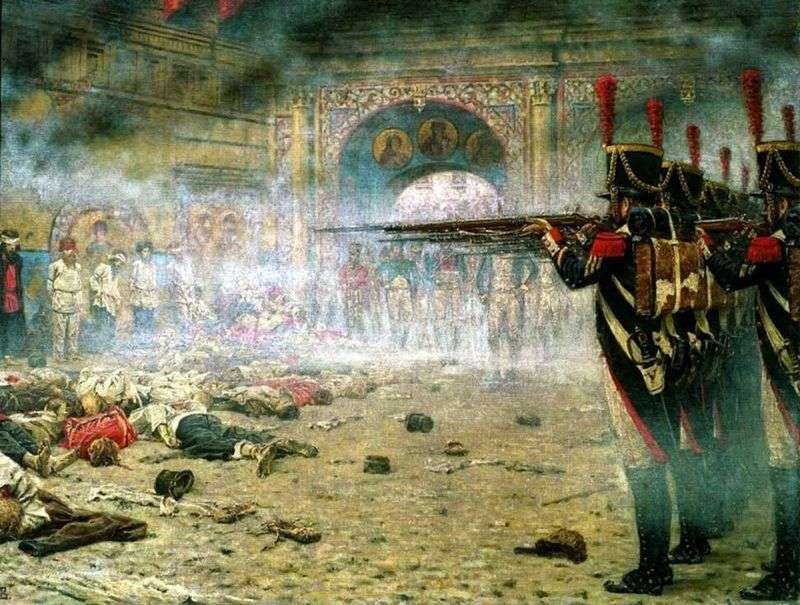
According to the laws of wartime, each city, conquered by the enemy, must obey the victor. After entering Moscow, Napoleon immediately appointed from among his entourage those who were supposed to maintain order in this newly conquered city.
But the order did not come. Soon after the arrival of the French army in Moscow, fires began in the city. The next day a terrible tragedy took place. The hurricane, which began in the morning, spread fire throughout the city; the left part of Moscow turned into a raging hell, warehouses on Red Square caught fire, very soon the streets around the Kremlin also sparkled from the fire. The houses, shops, warehouses and even entire blocks were burning. The troubles caused by the terrible fire were multiplied by numerous looting and looting by the soldiers of the Napoleonic army.
The Moscow fire has turned into a real disaster for the French. Napoleon ordered the formation of military courts and executed captured arsonists without any indulgence. And the hunt for them began. It was enough just to stay close to the burning house to be convicted of arson. People were seized in the streets, sent to military courts and shot…
Why did Moscow burn?
The French attributed the fire of Moscow to the treacherousness of General Rastopchin, sent to the city by saboteurs-arsonists, the Russians – to the French fanaticism.
“In essence,” Leo Tolstoy wrote in the novel War and Peace, “the causes of Moscow’s fire in the sense that this fire is attributed to the responsibility of one or more persons, there were no such reasons and could not be… Moscow had to burn out due to the fact that the residents left it, and as inevitably as a bunch of shavings must ignite, which sparks of fire will pour in over the next few days. The wooden city, where residents of home owners and police are in the summer almost every day fires, can not but burn out when there are no residents in it, and live troops, smoking pipes, laying out bonfires on the Senate Square from the Senate chairs and cooking themselves to eat twice a day.
Moscow caught fire from the pipes, from the kitchens, from the fires, from the untidiness of the enemy soldiers, the inhabitants – not the owners of the houses. If there were arson, then arson can not be taken for a reason, since without arson it would be the same. “
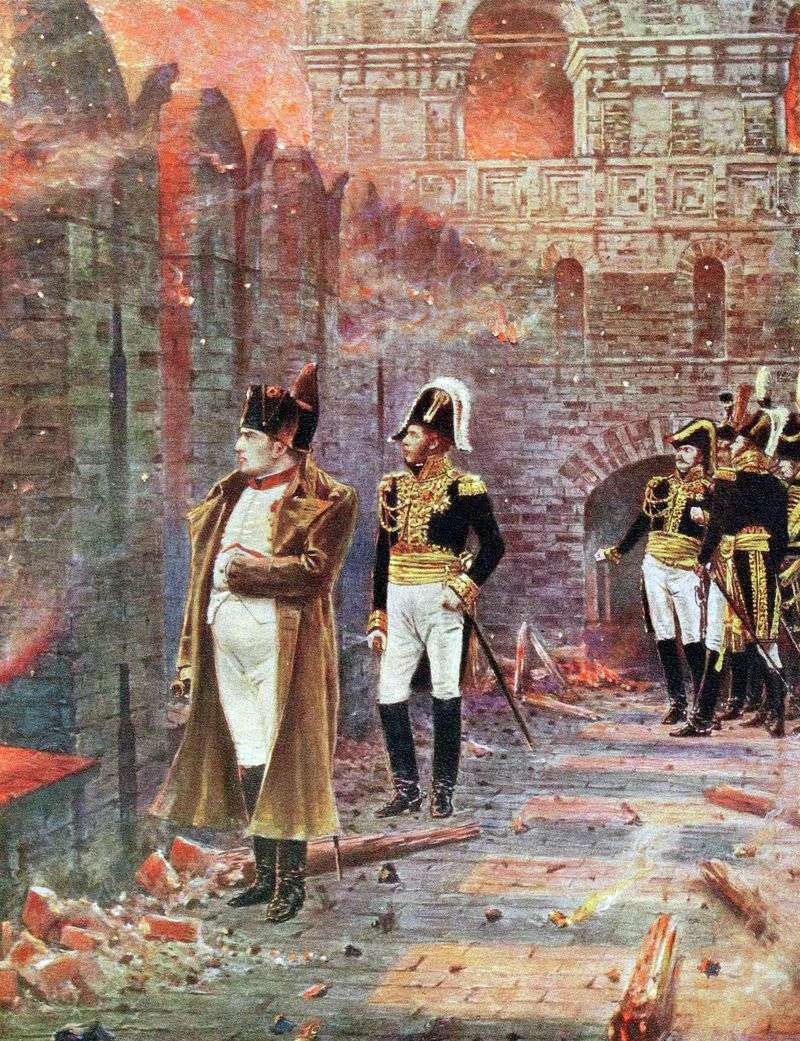 In the Kremlin by a fire! by Vasily Vereshchagin
In the Kremlin by a fire! by Vasily Vereshchagin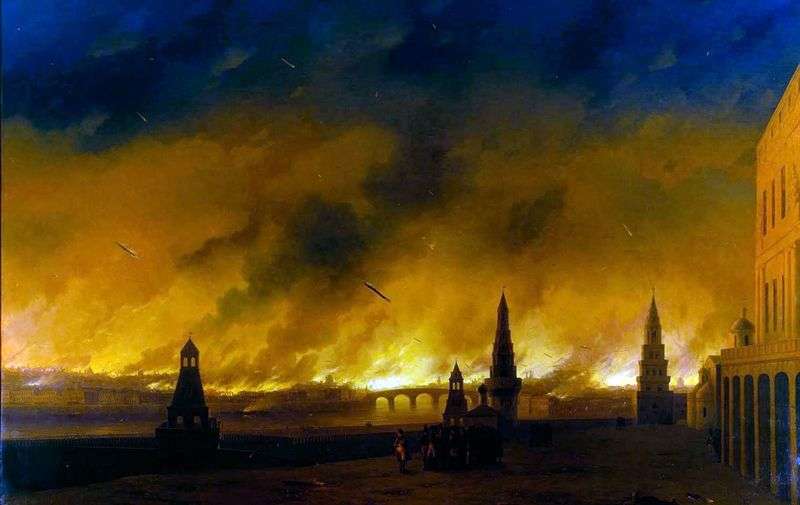 The fire of Moscow in 1812 by Ivan Aivazovsky
The fire of Moscow in 1812 by Ivan Aivazovsky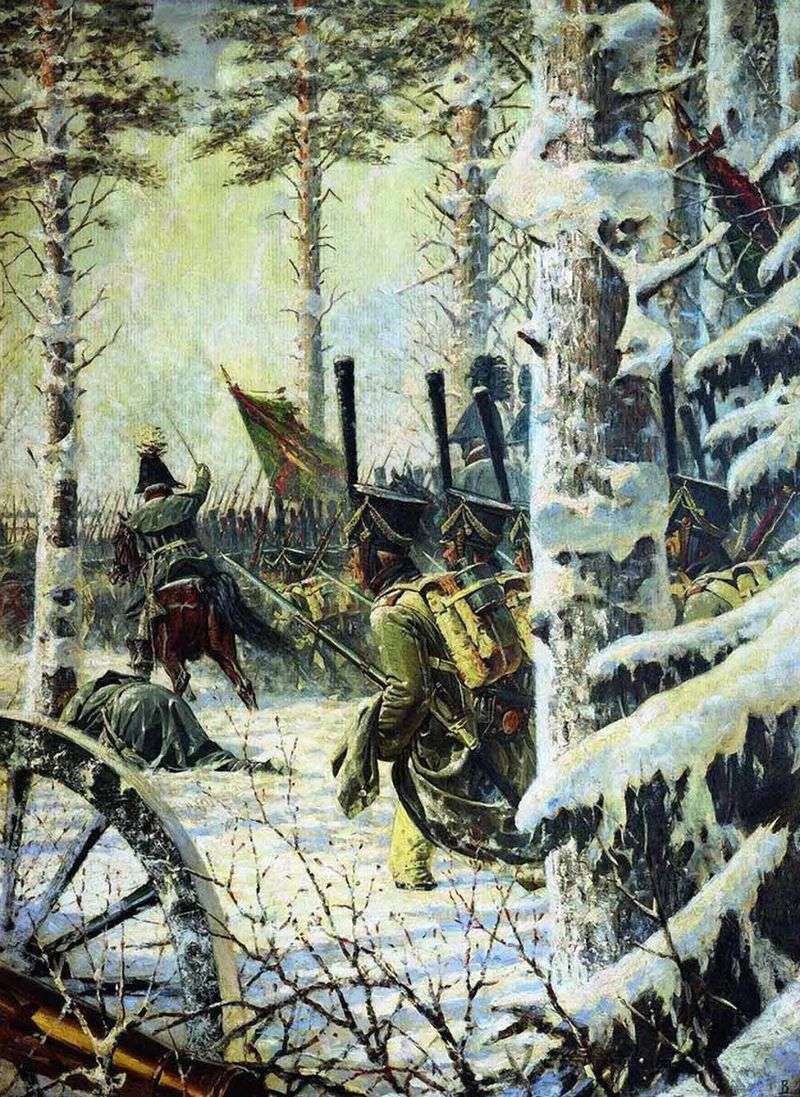 With bayonets! Hooray! Hooray! by Vasily Vereshchagin
With bayonets! Hooray! Hooray! by Vasily Vereshchagin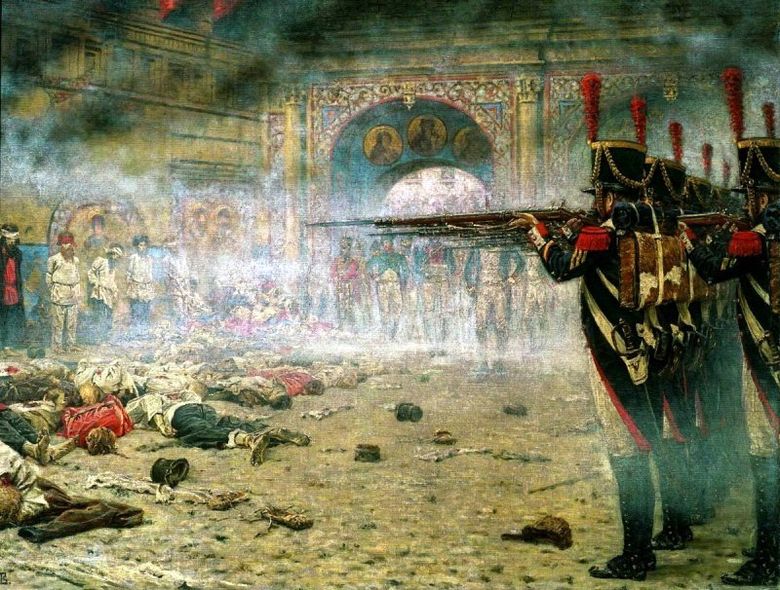 À Moscou conquise (“Incendiaires” ou “Tir au Kremlin”) – Vasily Vereshchagin
À Moscou conquise (“Incendiaires” ou “Tir au Kremlin”) – Vasily Vereshchagin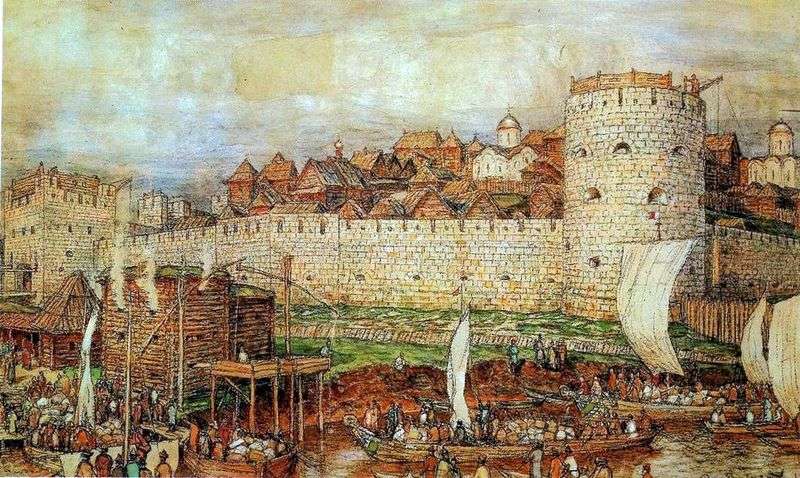 The Moscow Kremlin with Dmitri Donskoi by Apollinarius Vasnetsov
The Moscow Kremlin with Dmitri Donskoi by Apollinarius Vasnetsov Do not stop by let me come! – Vasily Vereshchagin
Do not stop by let me come! – Vasily Vereshchagin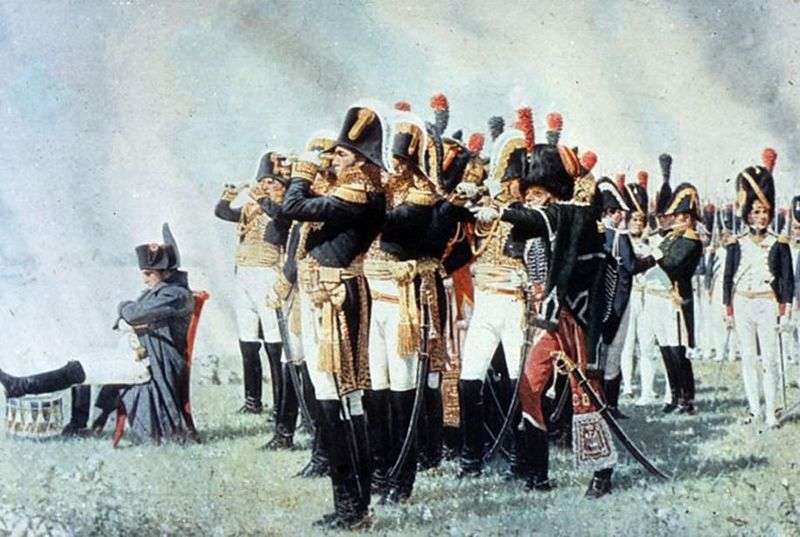 Napoleon on the Borodino heights by Vasily Vereshchagin
Napoleon on the Borodino heights by Vasily Vereshchagin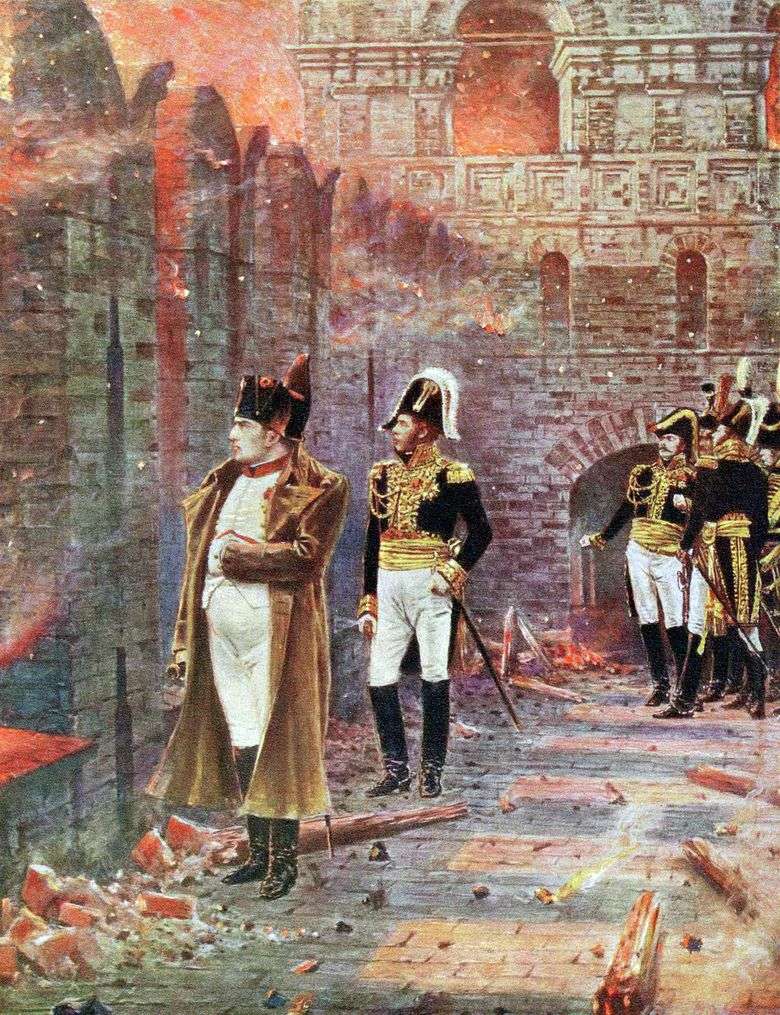 En el Kremlin – un fuego! – Vasily Vereshchagin
En el Kremlin – un fuego! – Vasily Vereshchagin